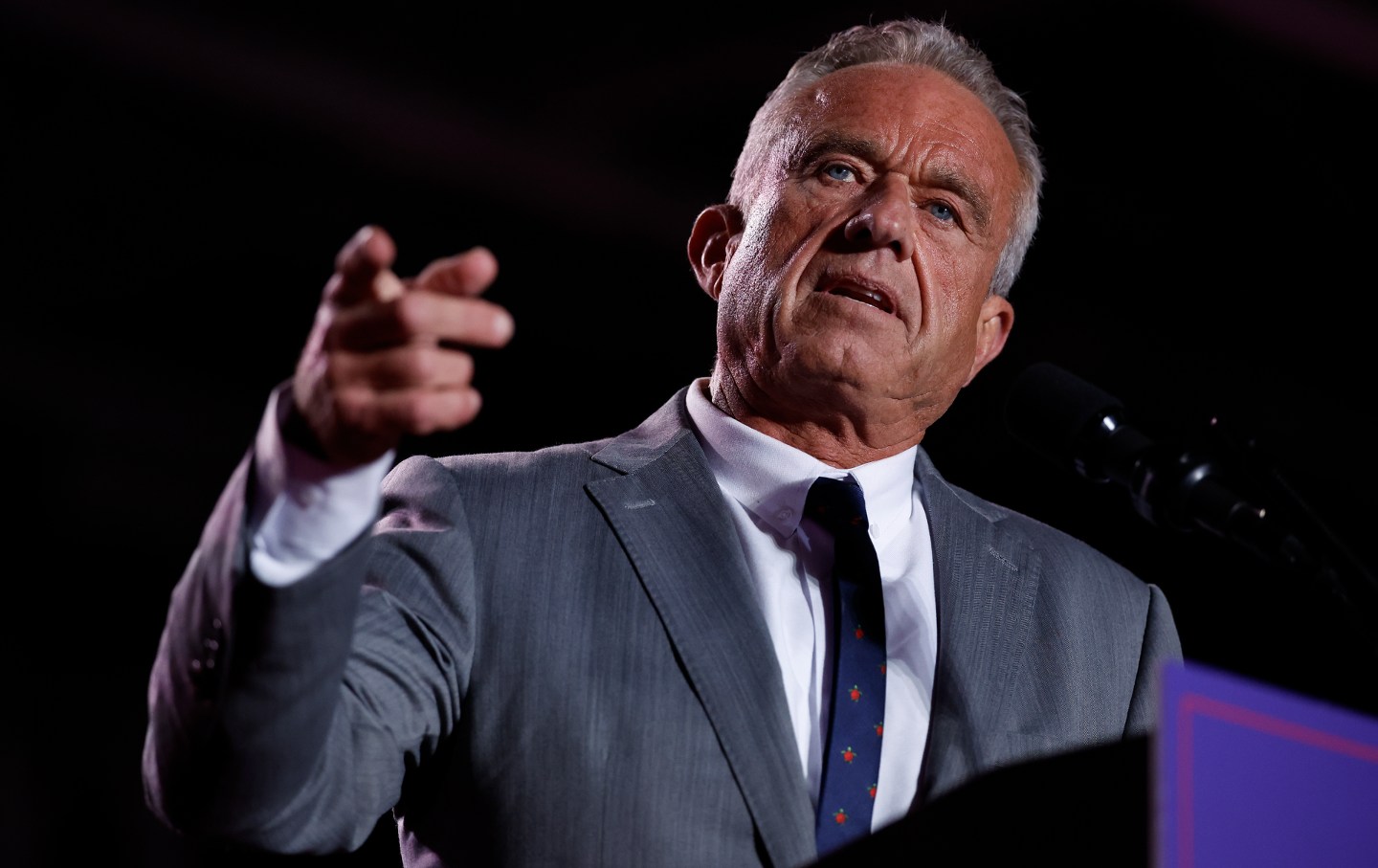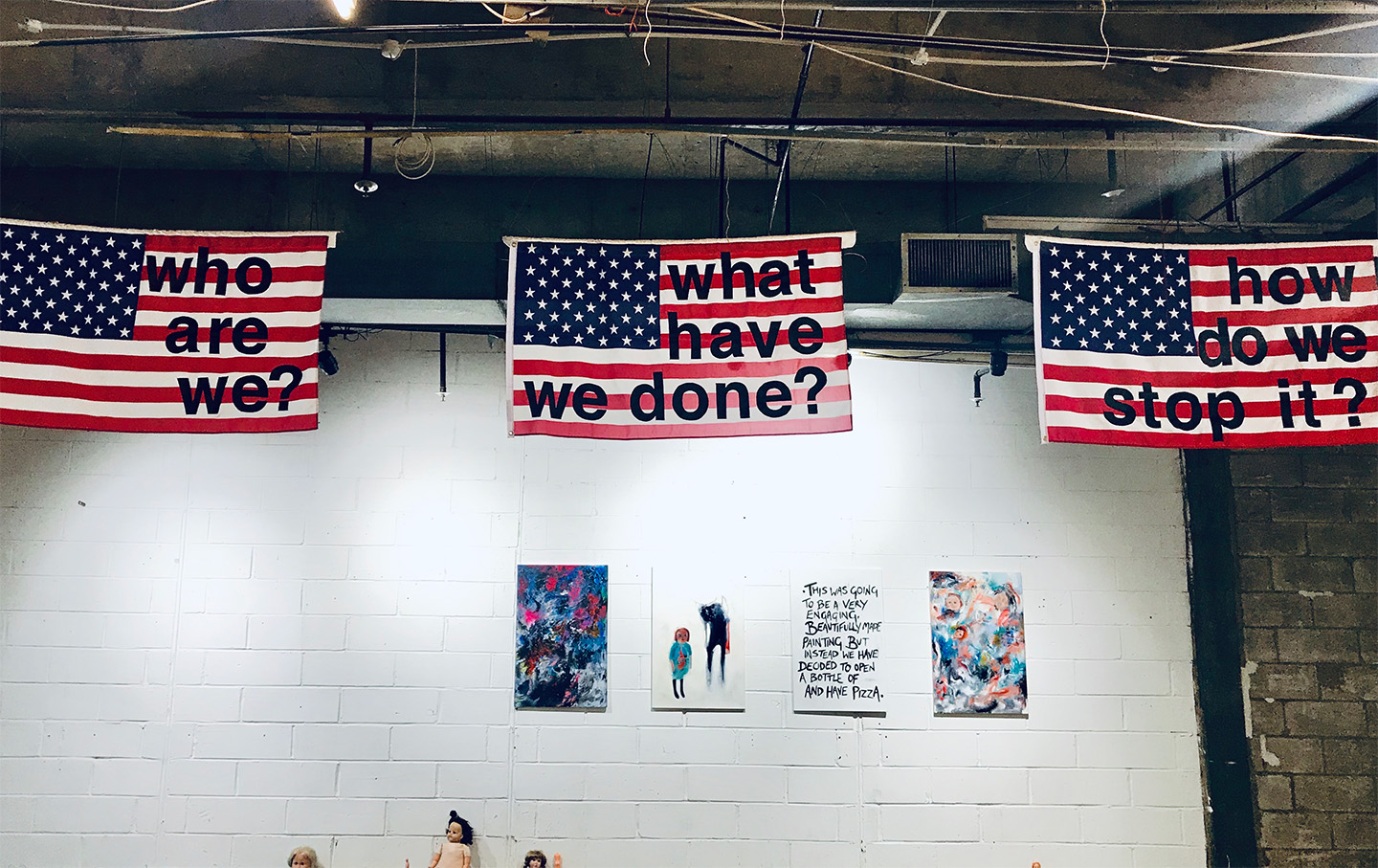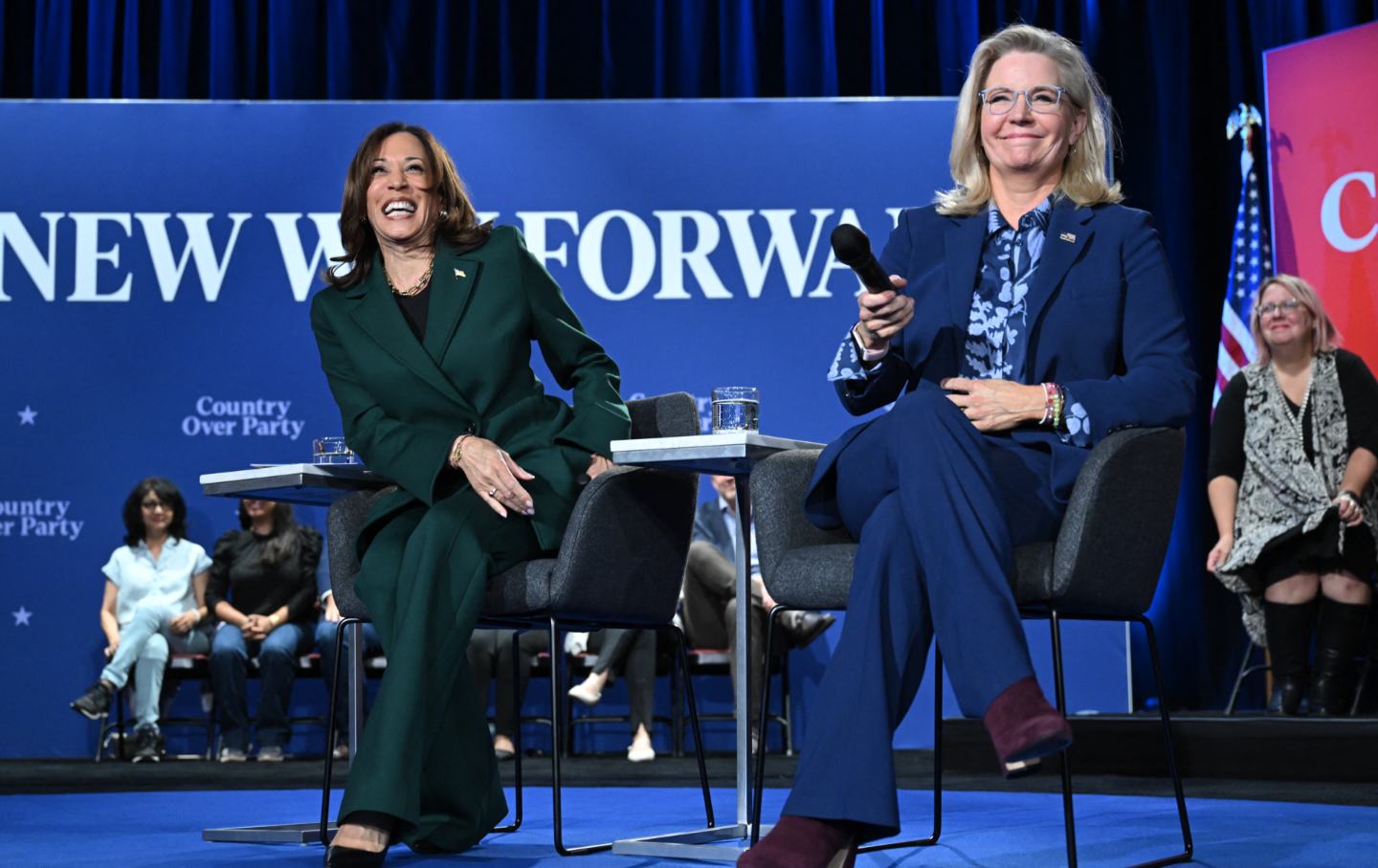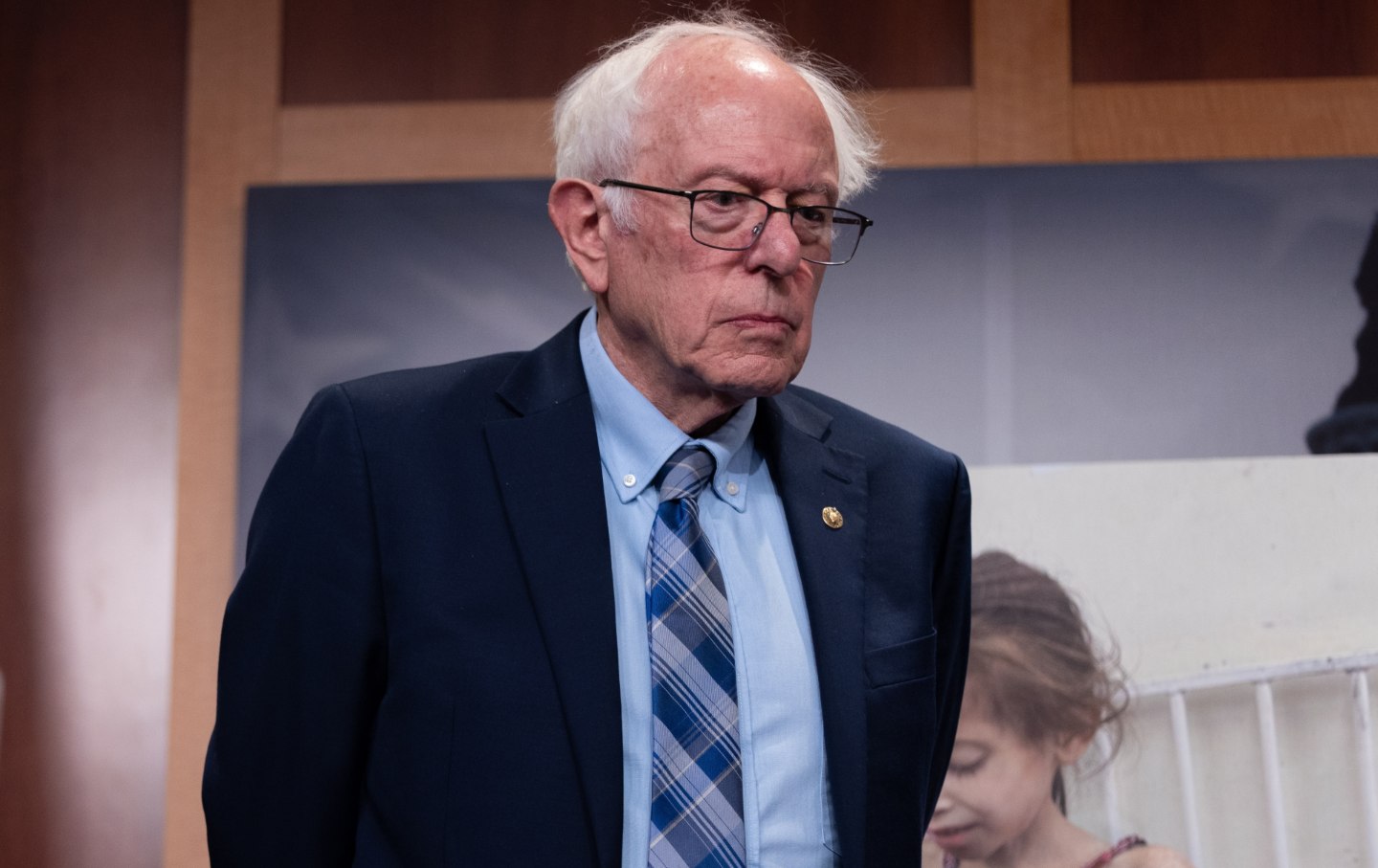Forget Trump’s Idea of Tax-Free Tips
Let’s end tipping altogether.

The Republican Party has a knack for tapping into the frustrations of people who are struggling to get by without actually helping them. GOP presidential nominee Donald Trump has offered up a new idea, for tips to be exempted from taxes. Building on that, Senator Ted Cruz (R-TX) introduced the No Tax on Tips Act in the Senate. Such knee-jerk ideas—Trump claimed he thought of it after an interaction with a Las Vegas server—do little to address economic inequality.
Tipped workers are among the lowest paid in the nation, and, depending on which state they live in, they may be entitled to less than the minimum wage. The federal minimum wage for tipped workers is an appalling $2.13 per hour—a floor that was last set in 1991.
For those surviving on the edges of our economy as a server or a food delivery driver, it may seem enticing to have tax-free tips—most GOP promises to working-class Americans are a mirage. But there is a solution that is far more equitable, that would benefit the public at large, and especially workers who currently rely on tips. While it may sound radical, what people desperately need—those who earn tips and those who pay them—is to eliminate the need for tips altogether.
A March 2024 report by the Center for Economic and Policy Research (CEPR) explains that the tipped minimum wage at the federal level is no longer linked to the minimum wage for other workers and has been frozen since 1991 because of legislation signed by then-President Bill Clinton. Because tips are expected to make up the difference between actual wages and take-home pay, as the federal minimum wage for other workers has risen, the percentage of tipped worker wages that comes from tips has risen along with it. Today, a whopping 71 percent of tipped workers’ wages at the federal level comes from what customers directly pay them.
If you’ve ever been lucky enough to travel outside the United States, one of the starkest differences you’re likely to notice is that tipping is not as customary as it is in this nation. There’s a good reason for our unique tipping culture. As it is with many unjust institutions, tipping has an ugly history that goes back to European serfdom and American enslavement.
“The practice of tipping is traced to the Middle Ages and the European feudal system, when masters would sporadically give pocket change to their servants,” explained CEPR’s Sylvia Allegretto. She pointed out that in “the post–Civil War period, the idea took a firm hold in the United States as employers were hiring formerly enslaved people.” In other words, the idea of tipping workers rather than paying them a fair wage grew on the backs of Black Americans and is a legacy of racist segregationist policies.
Today, Americans as a whole are struggling to make ends meet in spite of happy projections linked to Wall Street shareholder dividends. And yet we are expected to essentially subsidize our fellow workers each time we dine out, order food delivery, or even buy a cup of coffee.
The rules are arbitrary and ever-changing. For example, tips for Doordash and Uber drivers are the norm, but not for Amazon delivery workers or bus drivers. One financial adviser explained, “Customers are also increasingly prompted to tip for other services, such as car maintenance, retail stores and self-serve food, and many are feeling confused and frustrated as a result.” A 15 percent tip used to be the norm. That has crept up to 18 percent, and in some cases, even 25 percent of one’s bill.
Tips are a terrible idea for both customers and workers, but you won’t hear Trump or Cruz spell such things out. Those who cannot afford to tip generously are viewed as cruel and stingy. Those who rely on tips have to ingratiate themselves to every customer in order to be paid a fair wage. Tipped wages fuel sexual harassment and wage theft.
Tipping is also antithetical to forming a union, given that it is consistent with the hyper-individualist capitalist ethos of setting wages based on one-on-one interactions, while unionizing is about pooling resources to fight for a common good. Indeed, tipped workers are about 75 percent less likely to be in a union than other private-sector workers.
It’s not surprising then that American disgust with tipping culture is at an all-time high and that most would prefer that workers be paid a decent living wage without relying on tips. Just over half of tipped workers themselves would prefer a fixed living wage without having to deal with the indignity of shilling for tips to survive.
Proposing tax-free tips may sound like a tantalizing idea, but it will do little to address the crux of the matter, which is a serious labor issue. Instead, the main outcome of Trump’s idea would be to reduce government tax revenues—which is the ultimate Republican goal.
Doing right by tipped workers (and consumers) involves reconfiguring our economic system as a whole to ensure that no one relies on tips and that everyone has enough to live on. Grassroots campaigns such as One Fair Wage have been pushing for such a reconfiguration.
Further, Democrats introduced a bill in 2021, and again in 2023, called the Raise the Wage act, which would end sub-minimum wages for tipped workers while increasing the federal minimum wage for all to $17 an hour by 2028.
But such legislation doesn’t have the sort of surface-level appeal that Trump and Cruz’s idea does. Democrats would do well to challenge the party on why we live in a nation where tipping is the norm in the first place—a question that would likely find strong resonance among most Americans and could lead us down the path of shared prosperity for all.
Popular
“swipe left below to view more authors”Swipe →We cannot back down
We now confront a second Trump presidency.
There’s not a moment to lose. We must harness our fears, our grief, and yes, our anger, to resist the dangerous policies Donald Trump will unleash on our country. We rededicate ourselves to our role as journalists and writers of principle and conscience.
Today, we also steel ourselves for the fight ahead. It will demand a fearless spirit, an informed mind, wise analysis, and humane resistance. We face the enactment of Project 2025, a far-right supreme court, political authoritarianism, increasing inequality and record homelessness, a looming climate crisis, and conflicts abroad. The Nation will expose and propose, nurture investigative reporting, and stand together as a community to keep hope and possibility alive. The Nation’s work will continue—as it has in good and not-so-good times—to develop alternative ideas and visions, to deepen our mission of truth-telling and deep reporting, and to further solidarity in a nation divided.
Armed with a remarkable 160 years of bold, independent journalism, our mandate today remains the same as when abolitionists first founded The Nation—to uphold the principles of democracy and freedom, serve as a beacon through the darkest days of resistance, and to envision and struggle for a brighter future.
The day is dark, the forces arrayed are tenacious, but as the late Nation editorial board member Toni Morrison wrote “No! This is precisely the time when artists go to work. There is no time for despair, no place for self-pity, no need for silence, no room for fear. We speak, we write, we do language. That is how civilizations heal.”
I urge you to stand with The Nation and donate today.
Onwards,
Katrina vanden Heuvel
Editorial Director and Publisher, The Nation
More from The Nation

How Nominally Pro-Choice RFK Jr. Can Get Anti-Abortion Groups to Back His HHS Nomination How Nominally Pro-Choice RFK Jr. Can Get Anti-Abortion Groups to Back His HHS Nomination
He can pick a strident abortion opponent like Roger Severino, who wrote the Project 2025 chapter on HHS, as his number two.

Red Flags Red Flags
The result of the presidential election reflects individual and collective responsibility.

How Loyalty Trumps Qualification in Trump Universe How Loyalty Trumps Qualification in Trump Universe
Meet “first buddy” Elon Musk.

Bury the #Resistance, Once and For All Bury the #Resistance, Once and For All
It had a bad run, and now it’s over. Let’s move on and find a new way to fight the right.

Trans People Shouldn’t Be Scapegoated for Democrats’ Failures Trans People Shouldn’t Be Scapegoated for Democrats’ Failures
Politicians and pundits are stoking a backlash to trans rights in the wake of the election. They’re playing a dangerous game.

Bernie Sanders Is Leading a Bold New Effort to Block Arms Sales to Israel Bernie Sanders Is Leading a Bold New Effort to Block Arms Sales to Israel
The senator has more allies than ever in his fight to hold Israel accountable and save lives in Gaza.


